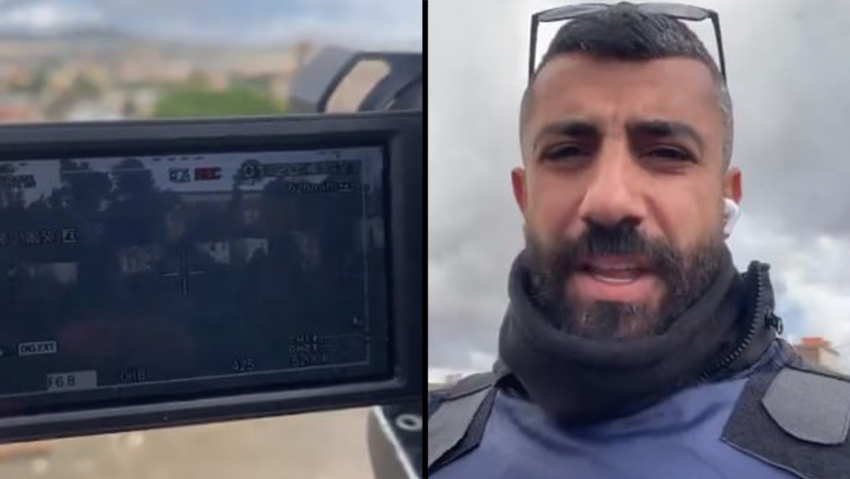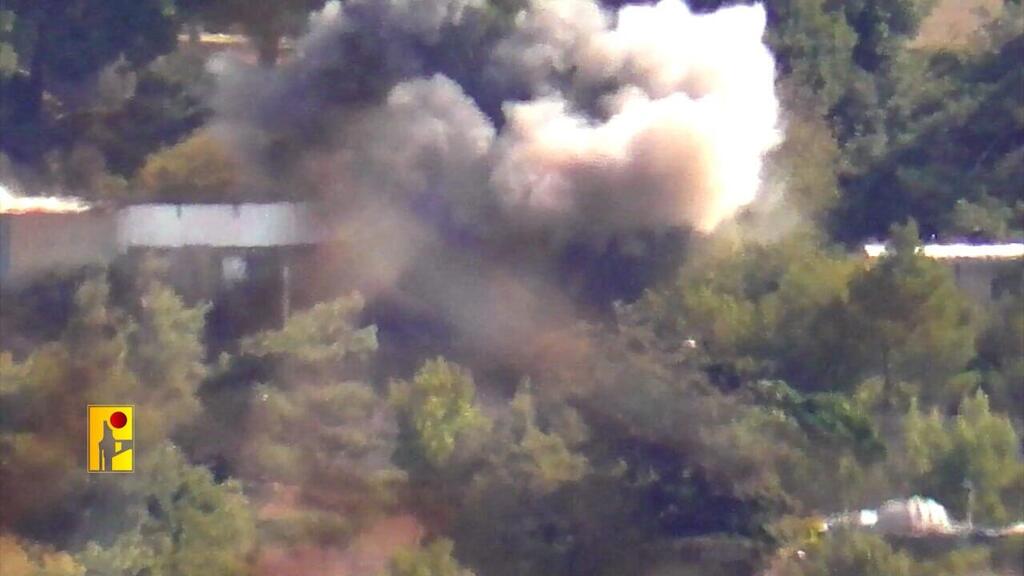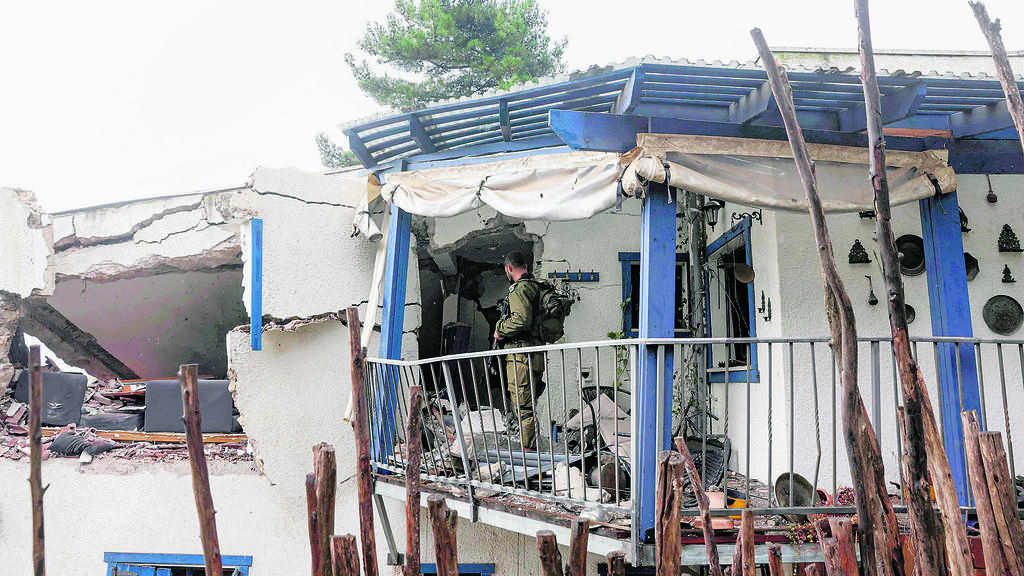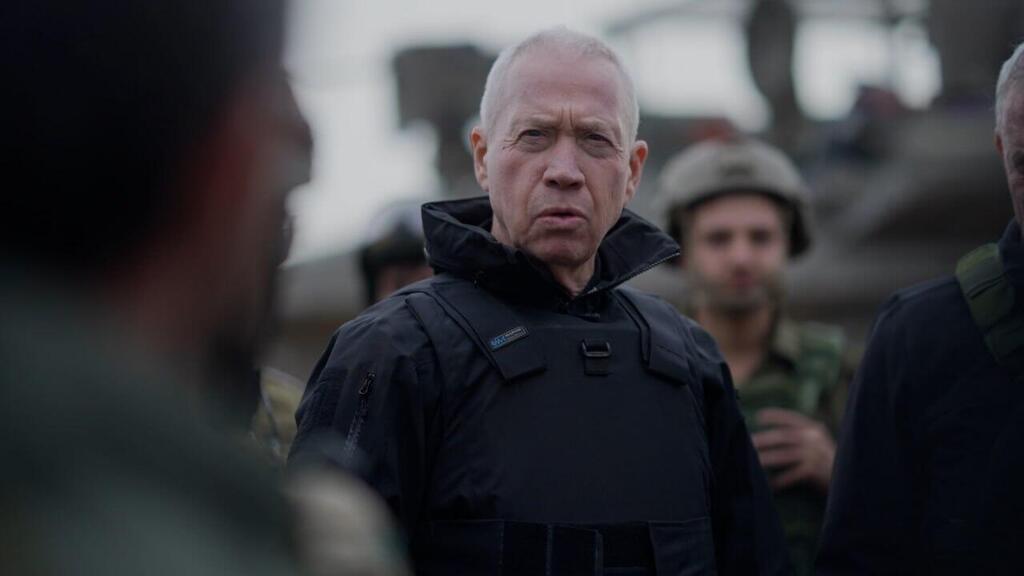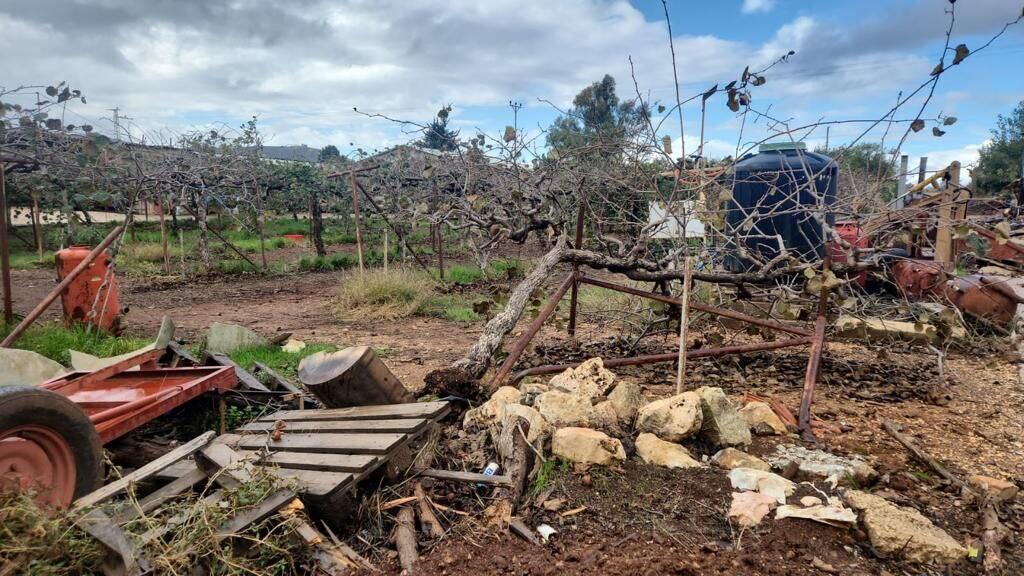Pro Hezbollah reporter mocks Manara residents
The devastation is widespread in the communities along the northern border with Lebanon. Residents evacuated two and a half months ago, but since then, their homes have been burned, roads ruined and infrastructure shattered by incoming fire from Hezbollah and, equally, by the tanks, APCs and other IDF hardware that transformed these communities into frontline outposts.
More stories:
On Sunday, Ali Mortada, a journalist from Lebanon's Hezbollah-affiliated Al Mayadeen network mocked the destruction in a post featuring Kibbutz Manara, where half of homes are estimated to be damaged. "Hello my enemies, may you have a terrible day. I know your military told you that over 50% of your homes were hit but has been preventing you from actually seeing the damage," Mortada said.
"So as a Lebanese, I am still on the border. I will show you what happened to your homes in Manara. Can you see it? Look at the building. Look here. You can see this home without a roof. Manara is now like a ghost town. Don't come back. Don't ever come back."
Orly Itzhak, the financial administrator of Manara, located just 400 meters (437 yards) from the border fence, reported that out of the 155 buildings in the kibbutz, 86 were impacted, suffering varying degrees of damage.
Most kibbutz residents reside in buildings of up to five stories, many of which have been hit by advanced anti-tank missiles. One public building, housing the kibbutz's dining hall, grocery shop and social club, took two direct hits.
"The destruction is total, beyond repair with just paint and a broom. The walls are destroyed, the roof is burned, and in some areas, the building's foundation is cracked," she said.
A Hezbollah terrorist cell based in the Lebanese village of Al Khiam, near the border town of Metula, launched a barrage of anti-tank missiles at homes, with at least nine confirmed direct hits. Additionally, since the war began, several IDF posts along the border have also sustained considerable damage.
"We are living in a crazy reality," said Giora Zaltz, head of the Upper Galilee Regional Council. "The government has established a security zone inside Israel rather than in Lebanon. The military operates from the border communities, and when a Merkava tank fires from within a newly built neighborhood, the shockwave demolishes doors and shatters windows."
Zaltz estimates that extensive rebuilding will be required in three-quarters of the communities in the Upper Galilee before residents can return.
"I have many homes that were hit," said Moshe Davidovich, mayor of the Western Galilee Mateh Asher Regional Council. "Roads and infrastructure are decimated, and communities are abandoned, turning into bases for tanks ready to strike."
Currently, there are no estimates of the damage or cost, as it remains too dangerous to enter the communities along the border. Any vehicle on the roads risks being targeted by anti-tank fire, which strikes without warning and always with devastating results. Consequently, the military often restricts travel on these roads.
Even the IDF avoids certain areas so estimating damage there is not possible
"There are areas the IDF hasn't reached, so we can't assess the damage there, but it seems considerable. We're uncertain about the state of the infrastructure," Zaltz explained. "This low-intensity war could last for weeks and might escalate at any moment. It's a very unpleasant situation."
Itzhak aims to bring appraisers to Manara to assess the damage and propose a preliminary reconstruction plan, but the kibbutz is currently off-limits. In some communities, authorities have approved urgent reconstruction to prevent further damage. This work, to be carried out by local councils with government reimbursement, will only commence once the fighting subsides.
So far, there have been 800 requests submitted to the Finance Ministry's tax authorities for compensation for war damages, with many more anticipated. "The issue is the lack of leadership. No one is informing us about what to expect tomorrow or next week," Yitzhak lamented. "I'm unsure who to approach for solutions and keep being sent from one office to another without receiving answers. It's very frustrating, especially when things are already difficult."
Nearly three months into the war, no government official has assumed responsibility for the situation. Only two weeks ago, Defense Minister Yoav Gallant appointed a former IDF general to head a dedicated directorate for the north.
He said that the directorate would enhance civilian infrastructure, bolster community security, expand and arm local alert squads for protection, and oversee rebuilding and implementation of government policies to ensure the safety of communities located up to nine kilometers (5.5 miles) from the border.
"With the budget allocated to the directorate, we could have significantly enhanced protection for northern communities," said Davidovitch. "I'm not sure they understand their role. If you ask them, they'll say they are still organizing and assessing the situation, but it seems they don't really know."
This marks the second directorate assigned to the north. The government formed another body six weeks ago to coordinate responses from various ministries, which is meant to work alongside a forum led by the Interior Ministry.
"I just hope these entities know how to communicate," Davidovich remarked, criticizing Gallant for excluding northern residents' representatives when establishing his directorate. "I questioned why he sees us as puppets on a string," he said. "I inquired about the directorate's responsibilities and goals. He replied that it would assist in rebuilding after military-induced damages."
Gallant could not even say how much of the billions for the war would be directed to rebuild the north
During a visit to the north, the minister promised to fast-track plans for shelters and defenses, but Davidovich barely concealed his frustration. "This is the same government that slashed one-fifth of the budget initially approved for these measures," he noted. "They've just authorized NIS 30 billion for war expenses from October to December. I asked how much of that would go toward shelters and protection in the north, but he had no idea. They are just selling us their platitudes."
Meanwhile, the Defense Ministry has ordered the evacuation of over 52,000 residents from homes within 3.5 kilometers (2 miles) of the Lebanese border. Local mayors note that an additional 30,000 have left voluntarily, bringing the total number of displaced residents to around 100,000. "I have people from 32 communities scattered across 60 sites around the country, and each community has different needs," Davidovich said.
Zaltz emphasized the difficulty of persuading residents to return after the war. "If Hezbollah retains its missiles and murderous intent, honed over a decade of fighting in the Syrian civil war, along with a force five times that of Hamas in Gaza, and precise weaponry – people will refuse to return to live on the border," he said. "They aren’t naïve or foolish. Zionism has its limits. Without communities along the border, the frontier would inevitably shift further south."
Meanwhile, the farming communities are amassing significant losses. Fruit remains unpicked, and earlier this month, a farmer tending to his citrus trees was killed by an anti-tank missile. "There will obviously be some compensation, but it won't cover the full amount lost or future revenue," Itzhak noted. "And that's not even addressing the impact on the tourism industry."
The IDF said it was "actively working to minimize damage to northern communities caused by its forces or operations" and "maintaining communication with local authorities to ensure continued functioning wherever possible."





